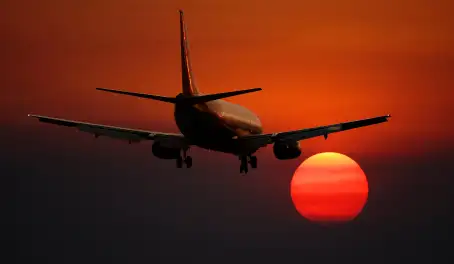
Today we’re in news bite mode, considering three topics related to the current state of the airline industry. While not all the news is bad, the overall trend is a negative one.
First, the bad news. The International Air Transport Association (IATA) has revised its projection for the airline industry’s financial performance. Based on the current price of fuel, IATA expects the industry to lose $2.3 billion during 2008. And it could get worse. According to Giovanni Bisignani, IATA’s Director General: “Despite the consensus of experts on the oil price, today’s oil prices make the $2.3 billion loss look optimistic. For every dollar that the oil price increases, we add $1.6 billion to costs. If we see $135 oil for the rest of the year, losses could be $6.1 billion.”
As the losses increase, so do the odds of losing airlines to bankruptcy. Which brings us to news bite number two: J.P. Morgan’s list of major airlines most and least likely to declare bankruptcy.
As reported in MarketWatch, J.P. Morgan ranks the largest publicly traded airlines as follows, listed from most to least at risk:
The report includes an ominous general assessment by J.P. Morgan’s airline analyst, Jamie Baker, who predicts “There will be blood.”
Finally, some good news for Mesa Air.
As [% 2603100 | | reported here %], Mesa faces multiple challenges over and above those troubling the industry at large. Not least among them is Delta’s termination of Mesa’s contract to operate commuter flights on its behalf.
Mesa took Delta to court over the matter, claiming that the contract suspension was unjustified and could force Mesa into bankruptcy. Late last week, a federal judge issued a preliminary injunction, barring Delta from backing out of the contract.
This may be no more than a temporary reprieve for Mesa. And it only addresses one of its many challenges. But it’s a step in the right direction.
We’ll end this roundup by circling back to the IATA report and Bisignani’s prescription for restoring the airline industry to financial health. His view:
Oil is changing everything. There are no easy answers. In the last six years, airlines improved fuel efficiency by 19% and reduced non-fuel unit costs by 18%. There is no fat left. To survive this crisis, even more massive changes will be needed quickly. Air transport is a catalyst for US$3.5 trillion in business and 32 million jobs. This is an extraordinary crisis with the potential to re-shape the industry with impacts throughout the global economy. Governments, industry partners and labour must deliver change.
Bisignani is right in characterizing the situation as a crisis, and in calling for change. But placing responsibility for that change at the doorstep of government, labor, and “industry partners” is clearly self-serving (IATA represents the airlines and promotes their interests), and just plain wrong. The airlines are largely responsible for the problems they face; they should take commensurate responsibility for solving those problems.
We hand-pick everything we recommend and select items through testing and reviews. Some products are sent to us free of charge with no incentive to offer a favorable review. We offer our unbiased opinions and do not accept compensation to review products. All items are in stock and prices are accurate at the time of publication. If you buy something through our links, we may earn a commission.
Related
Top Fares From
Today's Top Travel Deals
Brought to you by ShermansTravel
Greece: 9-Night Vacation, Incl. Meteora &...
Exoticca
 vacation
$2099+
vacation
$2099+
7- to 28-Night Mediterranean Cruises w/Onboard...
Holland America Line
 cruise
$1399+
cruise
$1399+
Ohio: Daily Car Rentals from Cincinnati
85OFF.com
 Car Rental
$19+
Car Rental
$19+



